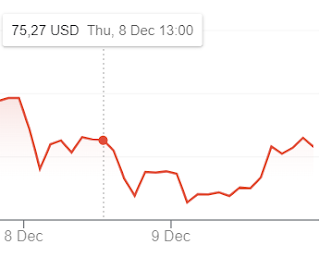Sisvel just announced a new patent licensing program, and it's the third major pool to have been launched by this administrator in the second half of 2022:
In July, Sisvel announced a WiFi 6 pool with patents from such licensors as Huawei, Philips, and MediaTek.
A little over a month ago, a cellular patent pool for narrowband IoT devices (standards: LTE-M and NB-IoT) was launched. The initial licensors are a large and diverse group including Ericsson, some network operators, renowned research institutes, and chipset makers.
This morning, Sisvel launched a 5G Multimode ("5G MM") Licensing Program, which "will be focused on consumer electronic products, and includes the 2G, 3G, 4G and 5G SEPs owned by 14 founding companies: Alfred Consulting LLC, Intellectual Discovery Co., Ltd., JVCKENWOOD Corporation, KDDI Corporation, Koninklijke KPN N.V., Mitsubishi Electric Corporation, Siemens Aktiengesellschaft, SK Telecom Co., Ltd., Technology in Ariscale, LLC, Telefónica S.A., TIM S.p.A., Wilus Inc., Wireless Innovations, LLC and Sisvel [with respect to the patents that have been assigned to it]."
This means Sisvel's pools cover the latest wireless standards (5G, WiFi 6) and emerging fields of use (narrowband IoT: smart meters, asset trackers).
In April, Via Licensing announced its exit from the wireless patent pool business, leaving Sisvel as the only administrator of a cellular SEP pool for consumer electronics products such as smartphones. Effectively, Sisvel's announcement today is not just an update (from 4G to 5G) but also serves to consolidate the industry, as Sisvel's 5G MM program manager Donald Chan says in today's press release:
"Sisvel’s 5G MM program will be the only cellular patent pool directed to the wireless market for consumer electronic products, with Via Licensing having announced its exit from the space. Having a single patent pool will help eliminate confusion in the market and increase cellular licensing efficiencies for implementers and licensors alike."
And there are indeed several former Via licensors in this new Sisvel pool from the get-go.
The announcement makes it clear that the door is open to additional licensors. It mentions that "Sisvel is also continuing discussions with various additional companies that may have an interest in joining the pool," and "invites all parties that have patents they believe to be essential to the cellular standards to join the patent pool" (subject to an independent essentiality evaluation).
Obviously, some large cellular SEP holders such as Ericsson and Nokia are going to license only bilaterally. They have the licensing and litigation departments in place to go it alone. For instance, Ericsson announced a new license agreement with Apple on Friday, settling litigation that was pending in several countries. But for many other patent holders, contributing their IP to a pool is an attractive option as it reduces transaction costs.
The initial group of Sisvel 5G MM licensors already makes this pool a licensor that by some metrics plays in the same league as some of the largest individual cellular SEP owners. There can be no doubt that Sisvel's 5G MM pool will from the beginning be able to present a very significant number of essentiality claim charts to licensees.
The per-unit royalty rates are stated on Sisvel's website and even the entire license agreement (PDF) is publicly available. These are the per-device license fees:
| up to 5G | up to 4G | up to 3G |
|---|---|---|
| US$0.50 | US$0.42 | US$0.25 |
The total addressable market is roughly a billion devices per year.
The royalty rates are actually lower than past published rates, which should make the offer more palatable to licensees. What always poses a challenge to patent holders and pool administrators is to work things out with implementers who sell most of their devices in very price-sensitive geographies. Sisvel has been quite successful in that regard, striking agreements with the likes of OPPO (the opposite--no pun intended--of a soft target) and vivo.
I can see various key success factors here that suggest it will make more sense for licensees to take the offer than to provoke infringement lawsuits, and more sense for cellular SEP owners who are similarly situated as the initial licensors to join this pool than to engage in experiments:
the aggregate significance of the cellular SEP portfolios that have already been contributed to the pool,
the license fee that I believe will easily be deemed FRAND should a court reach that question, and
the pool administrator's track record of being able to work out many license deals without litigation, but also being prepared to address infringement and hold-out behavior if need be.
IAM has also reported on Sisvel's announcement (paywalled). It is an important development for the 5G patent licensing space. I consider it likely that we'll hear from this pool again on multiple occasions next year, with additional licensors joining that group as well as device makers entering into license agreements (which aren't always announced, but sometimes).





